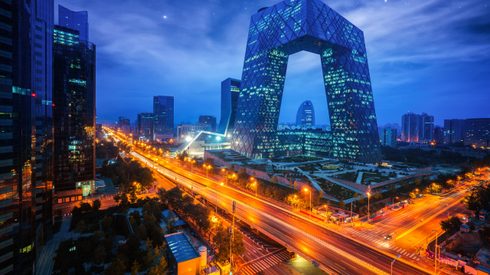TSR Recycling has begun producing the grade at its new processing plant in Duisburg, western Germany, which was inaugurated on Thursday.
The high-grade shredded material, named TSR40 by the company, is produced using an advanced sorting system that limits impurities such as copper and nickel, but is able “to guarantee very tight maximum values” for several chemical elements, according to the official.
Because of its strict chemical composition and high metallic content, TSR40 can be used to produce high-quality flat products and could be an alternative to direct reduced iron (DRI), the official told Fastmarkets.
The TSR40 scrap produced by the Duisburg plant is processed into very small pieces and can be used in both basic oxygen furnaces (BOFs) and electric arc furnaces (EAFs), he added.
A wide array of input materials is being used in Duisburg to make the scrap, including shredder feed, car bodies and white goods.
The plant will have the ability to process 450,000 tonnes per year of input material, according to the TSR.
Important piece of circular economy puzzle
Producing the TSR40 grade is touted by the company as a flagship project for the steel and scrap industries because the high-quality scrap produced is designed to allow BOFs in Europe to consume more steel scrap.
Although there is a widespread acceptance that Europe must boost scrap use to increase the sustainability of the region’s steel sector and reduce CO2 emissions, downstream sectors, such as automotive, demand the highest quality of steel in their products. They have traditionally bought flat steel made by BOFs heavily reliant on mined and high-carbon raw materials such as coke and iron ore.
But the tide in Europe appears to be increasingly turning towards the installation of EAFs powered by scrap or DRI.
Most recently, DRI Italia, a 100% subsidiary of state-owned investment agency Invitalia, said it would build a DRI module to feed Taranto steelmaker Acciaierie d’Italia.
ArcelorMittal announced in February 2023 that it would replace three blast furnaces with EAFs and DRI plants in a drive to decarbonize its French operations.
Against this backdrop, TSR’s innovation will be highly significant to Europe’s circular economy if it can allow steelmakers to use more scrap without compromising on quality.
Thanks to the high-quality processing of this steel scrap, TSR40 now opens up the possibility of using a first-class, certified product in the blast furnace [process] for the first time
“Thanks to the high-quality processing of this steel scrap, TSR40 now opens up the possibility of using a first-class, certified product in the blast furnace [process] for the first time. This complements our efforts to reduce CO2 emissions and our customers also benefit from this,” Dr. Arnd Köfler, chief technology officer at Thyssenkrupp, said.
“The materials used in Mercedes-Benz vehicles have to meet high standards. The company is researching new, resource-saving materials to reconcile sustainability and luxury. Here, we see a major lever in the circular economy,” Jens Rubi, head of circular economy at Mercedes-Benz AG, said.
The European Union (EU) was the second-largest steel scrap user globally in the first half of 2022, with estimated 43.856 million tonnes — down 3.2% year on year, according to the Bureau of International Recycling (BIR).
TSR’s innovation also comes at a time when greater limits on the exports of lower-grade EU ferrous scrap to non-OECD countries are under discussion, as well as expectations of increased steel scrap consumption within the EU’s internal borders due to ambitious circular economy goals.
These moves will inevitably lead to EU scrapyards increasingly focusing on producing more higher-grade steel scrap in the coming years, Denis Reuter, the ferrous board president of the BIR and chief operating officer of TSR, told Fastmarkets’ Middle Eastern Iron and Steel 2021 conference in Dubai.




